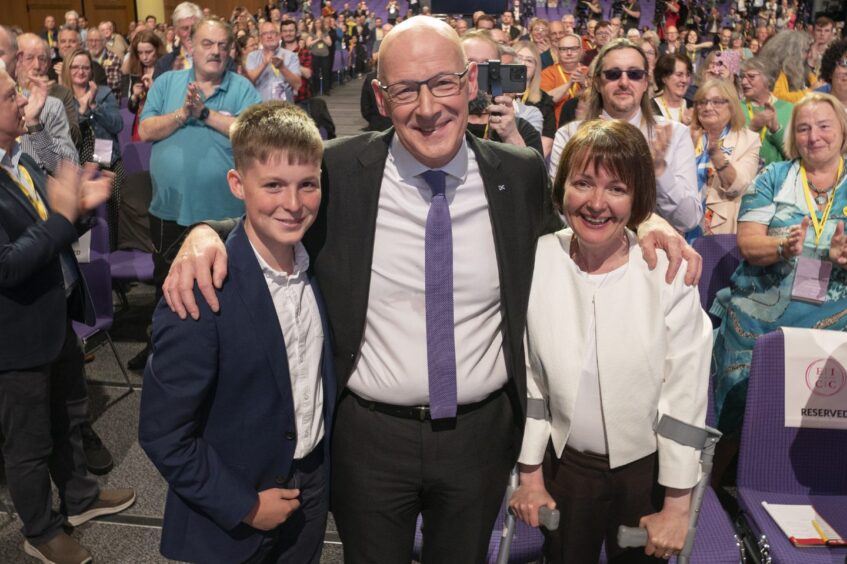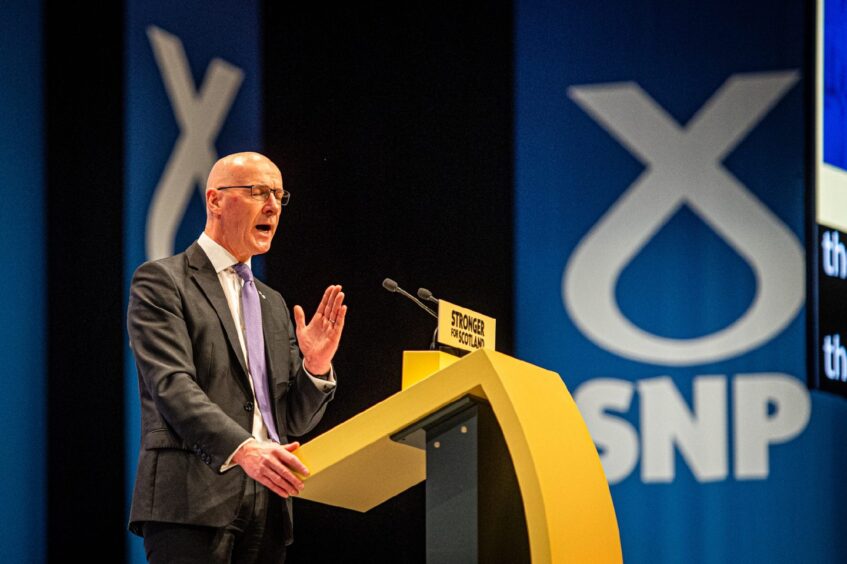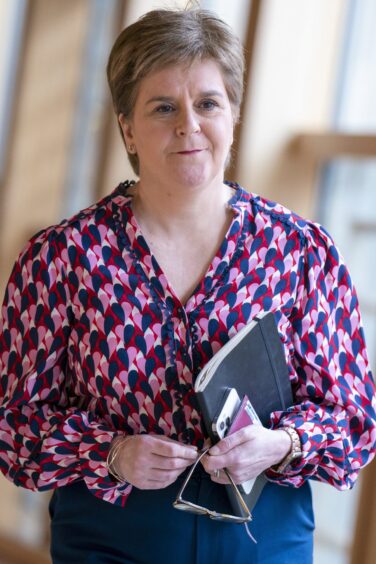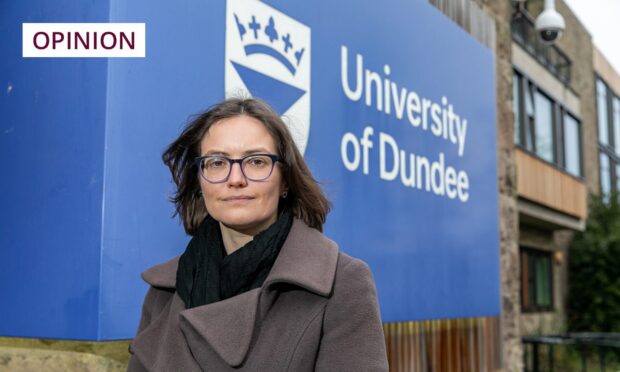As John Swinney became first minister earlier this year, many of his detractors confidently predicted he was installed only to manage the SNP’s decline.
Few seemed convinced by his declaration that he was “no caretaker”. If only because taking on the top job simply hadn’t been his plan.
After nearly two-decades of service at the very top of government, including a particularly punishing spell as deputy first minister during the Covid-19 crisis, his ambition to step away from the frontline was understandable.
“I was tired”, he admitted in an interview with The Courier.
It made it a decision that was far from straightforward. Not least because at home he had spent days speaking with his wife and young son about how this choice would impact them.
But the resignation of Nicola Sturgeon and the shaky tenure of her successor Humza Yousaf had rocked the party.
There was no one else in the party so universally trusted to take on the job.
Crumbling public services, a host of key manifesto pledges ditched and the ongoing embarrassment of a police probe into the SNP’s finances had all destroyed trust.
Safe pair of hands
It meant even his allies privately feared this “safe” pair of hands could do little more than soften the blow from an electorate that seemed to have fallen out of love with the nationalists.
To outsiders this was seemingly confirmed as the SNP were handed a bruising general election defeat.
Weeks into his leadership, Mr Swinney’s SNP lost 30 seats and, importantly, its coveted status as the third largest party at Westminster.
Nicola Sturgeon had lost control of SNP
When Ms Sturgeon quit as party leader and first minister earlier this year she had long lost control of a party she once had complete dominance over.
Dissenting voices inside her camp had grown louder over the SNP’s policy platform in government. On independence activists had become weary over the perceived lack of a clear, credible strategy.
Mr Yousaf, meanwhile, never had control. A bitter leadership contest left the party uncomfortable with itself and unsure of its future.
Instead of shaping events, the Dundee-based politician spent his short time in office reacting to crises.
All the more remarkable then that Mr Swinney appears to have steadied the ship inside a few short months.
Those close to him are confident that rather than managing a decline, Mr Swinney has successfully re-shaped his party into a force confidently looking to the future.
There was no clearer sign of this than in his response to the party’s devastating general election result.
Ms Sturgeon had spent much of her time as SNP leader rushing from one failed strategy to another in a bid to convince her membership she could deliver a much promised second referendum. Even going so far as to announce one could take place in October.
But while his belief in the cause of independence has not been diminished, Mr Swinney was clear on his priorities in the days after July 4.
“Nicola could never has responded like this,” one party veteran said.
“Even during the pandemic when there was good reason to she never publicly conceded that it was anything other than imminent.”
Another source close to Mr Swinney pointed to his experience as a Perthshire MSP as critical to his informing his plan to regain trust.
While his constituents have supported him for over two decades as an SNP politician, the first minister knows well that they are far less convinced about independence.
“Nicola represents a city that remains enthusiastic about independence,” an ally explained.
“If anything had changed since 2014 it had only strengthened that support.
“John comes at this as a Tayside politician who represents an area that is prepared to vote SNP but isn’t yet convinced by independence. He knows it has to be relatable.”
This focus on re-building trust in his government’s ability to deliver is what those close to him say is now a relentless focus.
It will be martialled around the government’s 2025-26 budget, which one adviser says is written to inspire “hope”.
Opposition politicians have legitimately attacked an apparent lack of ambitious targets.
But one SNP government source explained: “The first minister is wise to avoid big promises that come with a risk of announcing delays in 12 months. We know there has been too much of that.”
Can John Swinney stay the course to 2026?
As 2024 draws to a close, and political debate is put on ice for the festive season, it is the SNP ends the year in a better place than it started.
Far from gloomy predictions of defeat come the 2026 Holyrood elections, Mr Swinney instead appears to be mapping the route to an unprecedented fifth term in power.
Of course, whether he can stay the course and see a return on that mission to re-secure trust remains to be seen.















Conversation